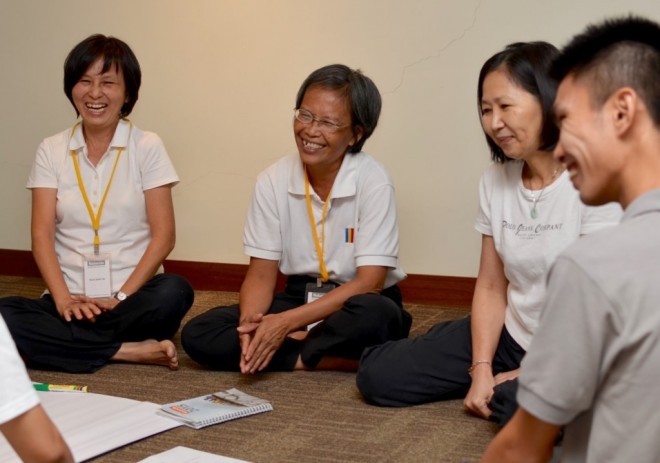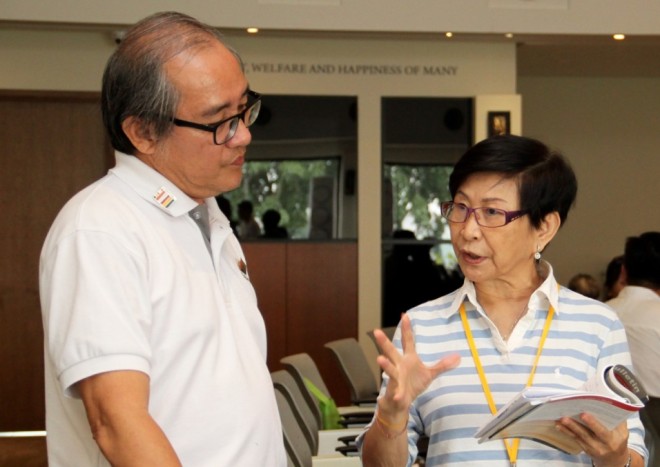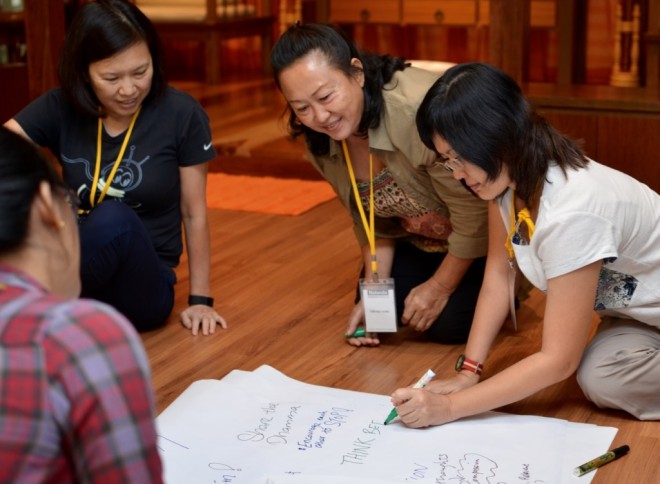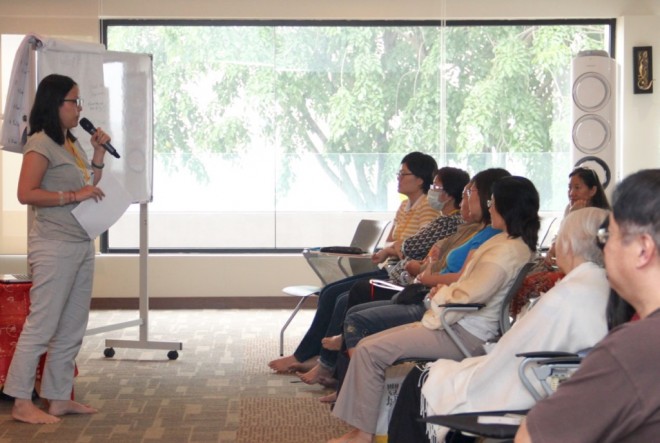‘Kusala Kamma’ and ‘Akusala Kamma’ reviewed
‘Kusala Kamma’ and ‘Akusala Kamma’ reviewed
On Saturday 3 October, students of BPS 303 – Certificate in Buddhist Studies turned up for their second tutorial session with Bro. Ananda Fong. The focus of the tutorial was to recapitulate on earlier lectures about the Ten Wholesome and Ten Unwholesome deeds.
Bro. Ananda Fong quoted the first and second verses of the Dhammapada where the Buddha taught that the “mind is the forerunner of all states”. If one were to have unwholesome thoughts rooted in greed (lobha), hatred (dosa), and delusion (moha), then “suffering follows one, even as the wheel follows the hoof of the draught-ox”; whereas “if one speaks or acts with pure mind, then happiness follows one, even as one’s shadow that never leaves”.
Bro. Ananda reiterated the importance of being mindful of our thoughts, speech and actions with regard to wholesome deeds (kusala kamma), and avoid unwholesome actions (akusala kamma).
The tutorial was followed by an interesting discussion on ‘dependent origination’ where Bro. Ananda used the simile of a germinating seed to illustrate how our present conditions are influenced by past actions. The Buddha taught:
When this is, that is;
From the arising of this, comes the arising of that;
When this isn’t, that isn’t;
From the cessation of this, comes the cessation of that.
– AN 10.92
During the group discussion, participants reflected on their past deeds and how they would use the knowledge they had learned on kusala kamma and akusala kamma to guide them in their daily lives. The tutorial also helped the students to have a deeper understanding of earlier lectures in the course, thus enhancing their appreciation of the Dhamma.





